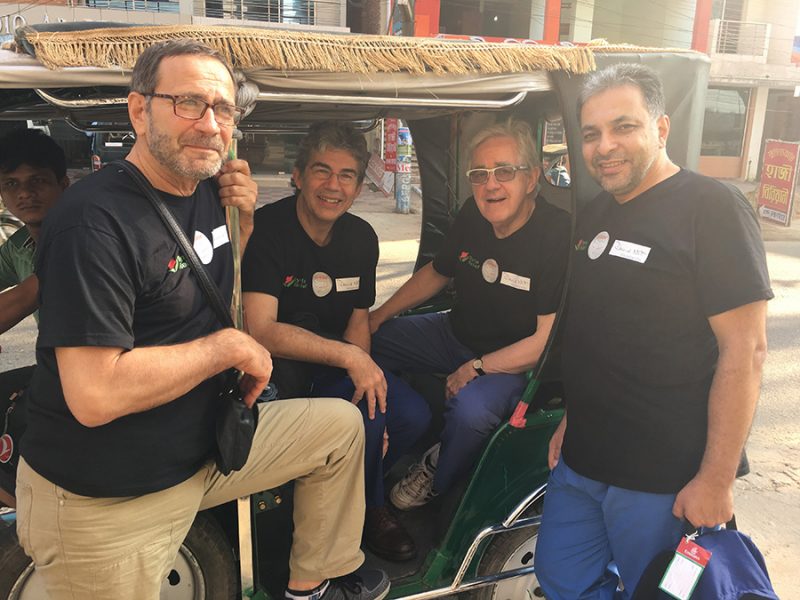In November 2017, I was privileged to work for almost one week serving the Rohingya refugees with surgeon David Nott. The trip was arranged by Syria Relief and David’s charity organisation, the David Nott Foundation. A recent account of the ethnic cleansing of the stateless, minority Moslem people in Rakhine province, Myanmar (Burma), by the Burmese army was broadcast on “Crossing Continents: The Tula Toli Massacre” on BBC4, 23 November.
After thirty hours of travelling, we were met at Cox’s Bazar airport by Syria Relief, who had secured our medical registration. We were driven to a local government hospital about twenty miles from the refugee camps. There, in a ward, segregated from the Bangladeshi patients, were about fifty Rohingyan patients. Some were lying in beds and others on mats on the floor, holding up their notes and X-rays and waiting patiently for us to assess.
We were expecting to find gunshot wounds and burns but most of the patients presented classical general surgical problems including seven little boys lined up with long neglected, large congenital inguinal hernias. Three patients, each catheterised, aged 7, 17 and 50, presented with enormous bladder stones.
